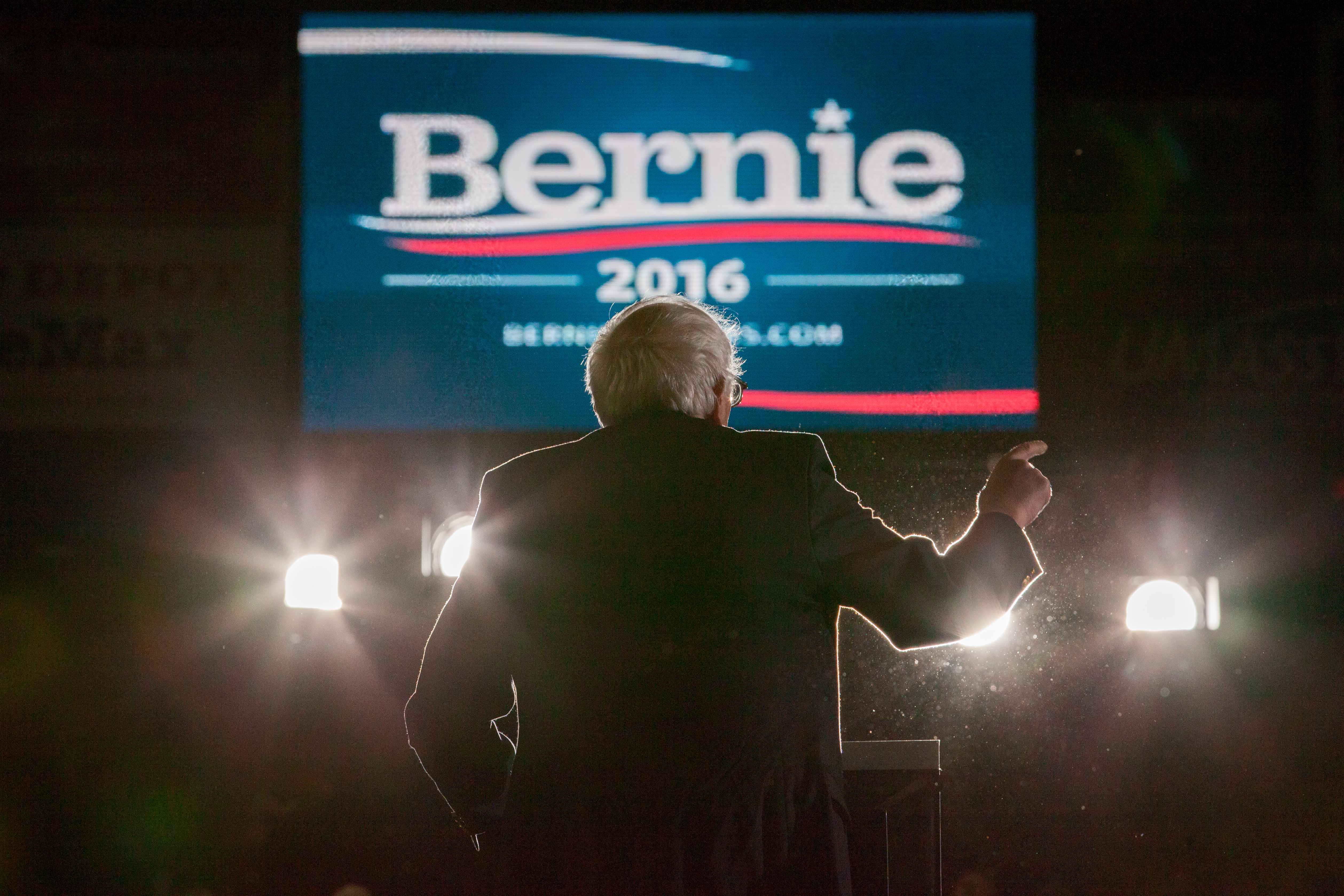2016 isn't the 'year of the political outsider'
Insiders are still doing quite well for themselves, thank you very much


A free daily email with the biggest news stories of the day – and the best features from TheWeek.com
You are now subscribed
Your newsletter sign-up was successful
The conventional wisdom goes like this: 2016 is the year of the political outsider. As one, the electorate has risen up to reject the stale, be-suited, lobbyist boot-licking, establishment-approved drones, and has instead opted for edgy populist authenticity — right or left, it hardly matters. Poofy white hair and gaudy orange hair are in; sober perfect coiffures are out. People are sick of broken promises and bank bailouts, and the establishment can do nothing but tremble weakly before all that righteous democratic wrath.
That's the narrative that's generally been used to explain the surprising success of Bernie Sanders on the Democrats' side and the stunning ascendancy of Donald Trump on the Republicans'. The Vermont senator is a self-declared socialist who romped to victory over Hillary Clinton in New Hampshire, and who continues to win the hearts of young voters, despite Clinton's persistent leads elsewhere. Trump, meanwhile, is a businessman and reality television star who has never held public office. Yet he has won primary after primary with a mix of blustering braggadocio and sneering appeals to anti-immigrant nativism.
Is this really a sign that outsiders are strong and the center is weak? That isn't exactly the narrative that emerges when you look more closely at Clinton vs. Sanders. Yes, Sanders is an unusual candidate, and one with relatively little support among Democratic Party actors. But he didn't emerge as the alternative to Clinton because he's an outsider. He emerged as the chief rival for Clinton because other, more mainstream candidates declined to get in the race. Joe Biden, Elizabeth Warren, Tim Kaine, Julian Castro, John Kerry — none of them ran.
The Week
Escape your echo chamber. Get the facts behind the news, plus analysis from multiple perspectives.

Sign up for The Week's Free Newsletters
From our morning news briefing to a weekly Good News Newsletter, get the best of The Week delivered directly to your inbox.
From our morning news briefing to a weekly Good News Newsletter, get the best of The Week delivered directly to your inbox.
And why didn't they run? Maybe the entire Democratic field just didn't feel like bothering this time out. But it seems more likely that nobody ran because Hillary Clinton, who has been running for president for a decade (if not more), sewed up support within the party well before the first ballots were printed, much less cast. Clinton effectively outmaneuvered and defeated all her mainstream opponents very early on, which is why none of them (except poor Martin O'Malley) decided to challenge her.
With Warren and Biden and everyone out of the way, the path was open for Sanders to position himself as her sole opponent. There's no doubt he's run a strong campaign, but he's also clearly fallen short of the vote percentage he'd need to win the election in every contest so far — brutally so in South Carolina. His chances to win the nomination are low and fading — which just underlines that he, or someone like him, was always the candidate Clinton wanted fo face. The fact that an outsider became the main challenger has less to do with pent-up, wholesale rejection of the mainstream, and more to do with the fact that the mainstream consolidated early. Sanders' rise is a result of Clinton's strength, not her weakness.
The Republican mainstream is clearly not as organized, or as coordinated, as the Democratic side. The GOP has been lurching toward dysfunction for decades, and more so than ever since George W. Bush's disastrously failed presidency. Still, there's a real sense in which Trump's rise is due as much to the party's strengths as to its weaknesses. In a year where a Republican victory in the general election seemed at least as likely as not, the GOP drew a crowded, qualified conservative field of current and former governors and senators, including Chris Christie, Rick Perry, Bobby Jindal, Scott Walker, John Kasich, Jeb Bush, Marco Rubio, Mike Huckabee, and yes, even Ted Cruz, whose much-vaunted outsider status is more a pose than a reality. It's not so much that no one could stand against the wave of outsider resentment as that all the powerful insiders thumped each other so thoroughly that the outsider was able to sneak around the bloodied remains.
Still, a competent party should have been able to winnow its bevy of insider candidates down before there was quite so much Trump-mentum. But the problem isn't that party insiders lack power. The problem is that they put their power behind the wrong candidate: Jeb Bush.
A free daily email with the biggest news stories of the day – and the best features from TheWeek.com
The GOP never adequately dealt with George W.'s legacy of lost wars and financial collapse, which they want to forget but haven't been willing to reject. Jeb's entrance into the race, complete with last name, gave the party the equivalent of a neurotic collapse, as they proved unable to either nominate him or coalesce around anyone else while he was still in the game. In that sense, the suggestion that Trump knocked Bush out of contention seems exactly reversed. Instead, it's Bush and his family who laid the GOP establishment low, so Trump could walk over it.
This year, as most years, there are many voters who dislike politicians in Washington; hating politicians in Washington is a tradition that goes back to Thomas Jefferson, at least. But the argument that there's some giant populist upswell of left and right against the middle isn't convincing. The Democratic Party structure looks as strong as, or stronger than, its ever been. The Republicans are a mess — but that's at least as much because of the center's combustible mixture of strengths and weaknesses as it is because of some sort of spontaneous sweeping populist anger.
The "year of the outsider" sounds both revolutionary and gratifyingly bipartisan. But it obscures more than it reveals. The election is not about cross-ideological populist anger. It's about one party that is functioning quite well, thank you, and another that is not.
Noah Berlatsky is a freelance writer whose work appears in The New Republic, The Guardian, and other venues. He is the author of Wonder Woman: Bondage and Feminism from Rutgers University Press.
